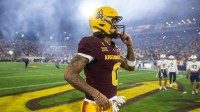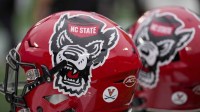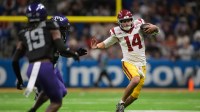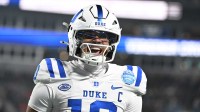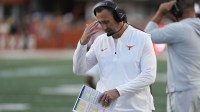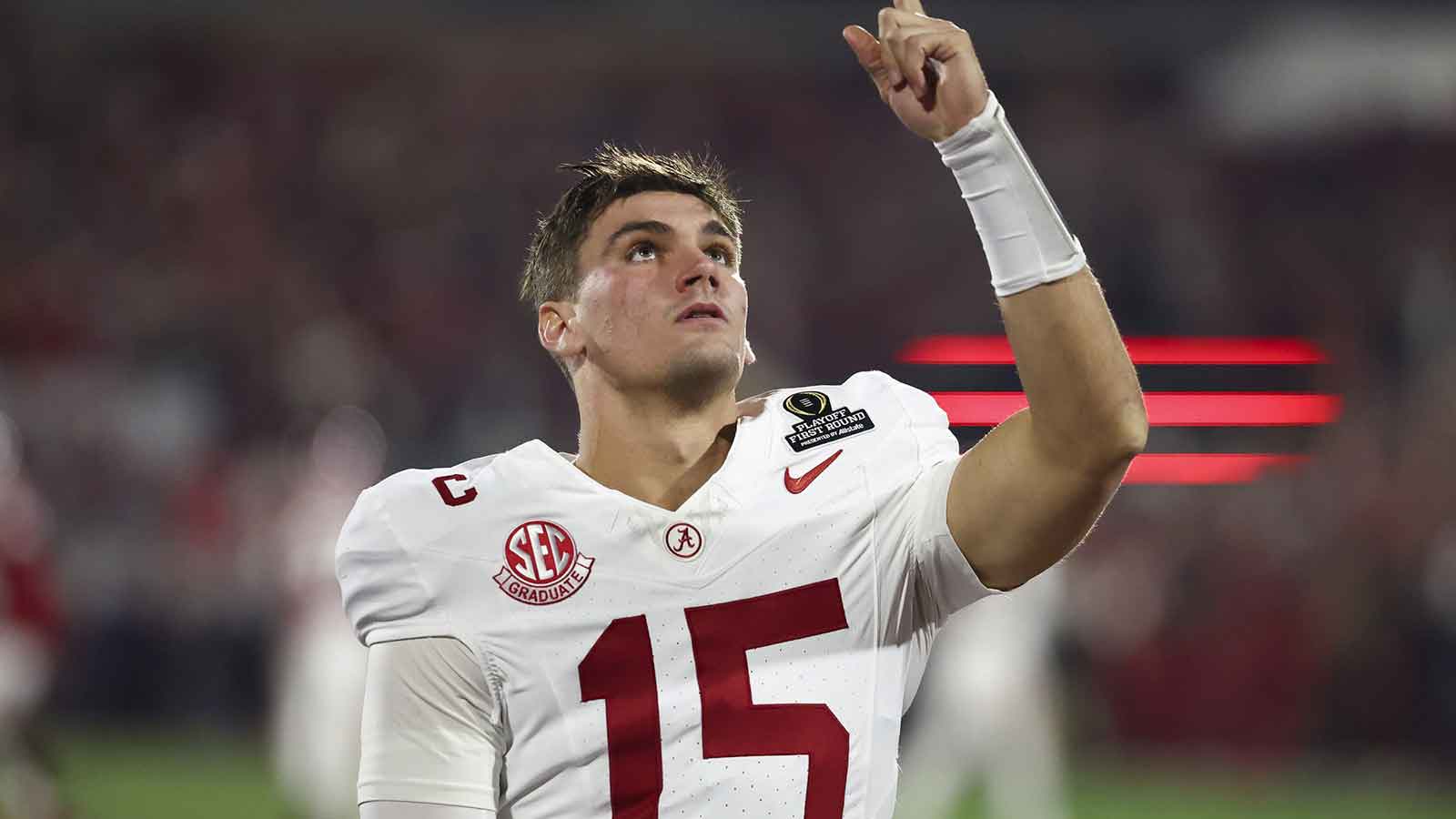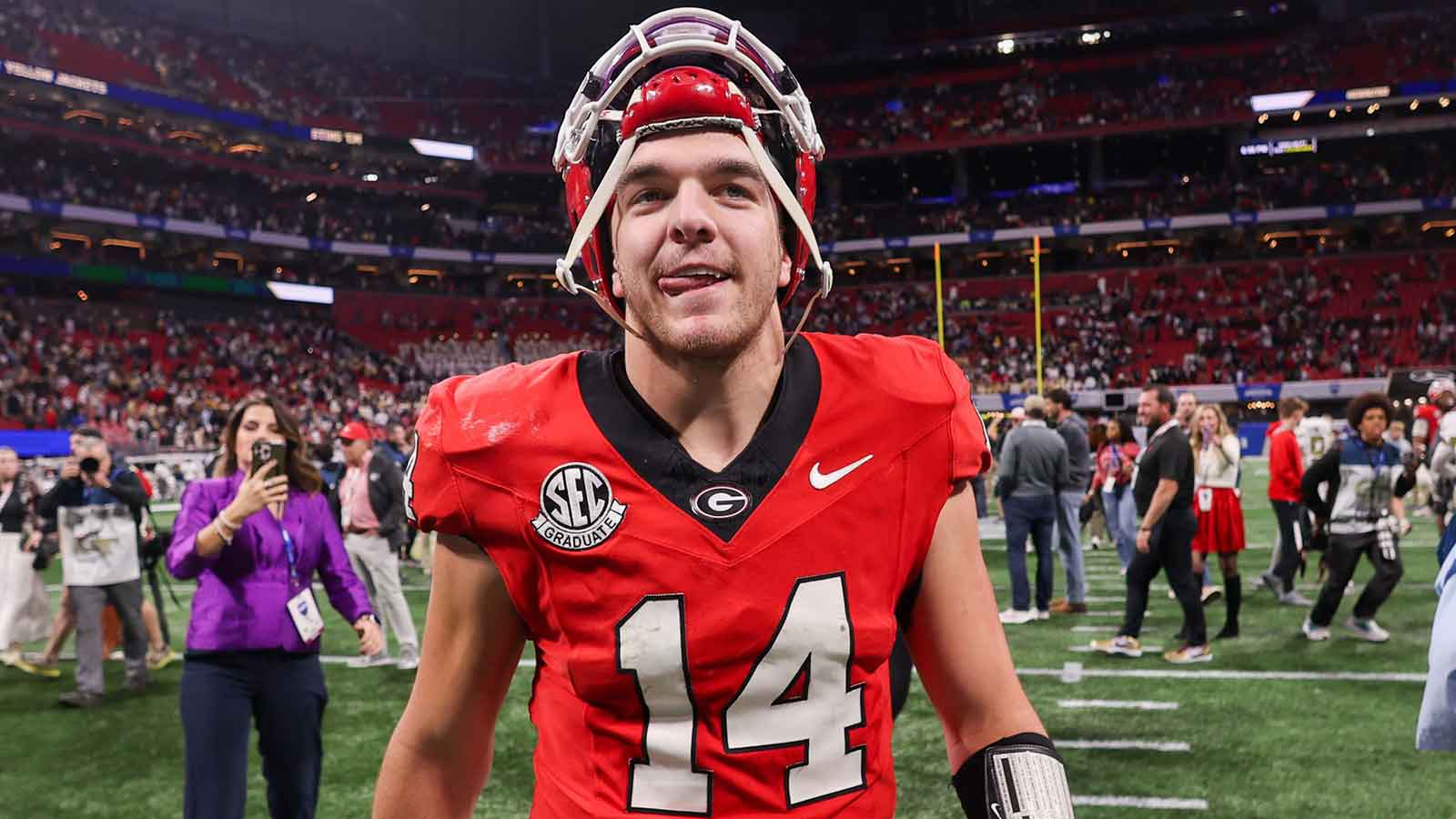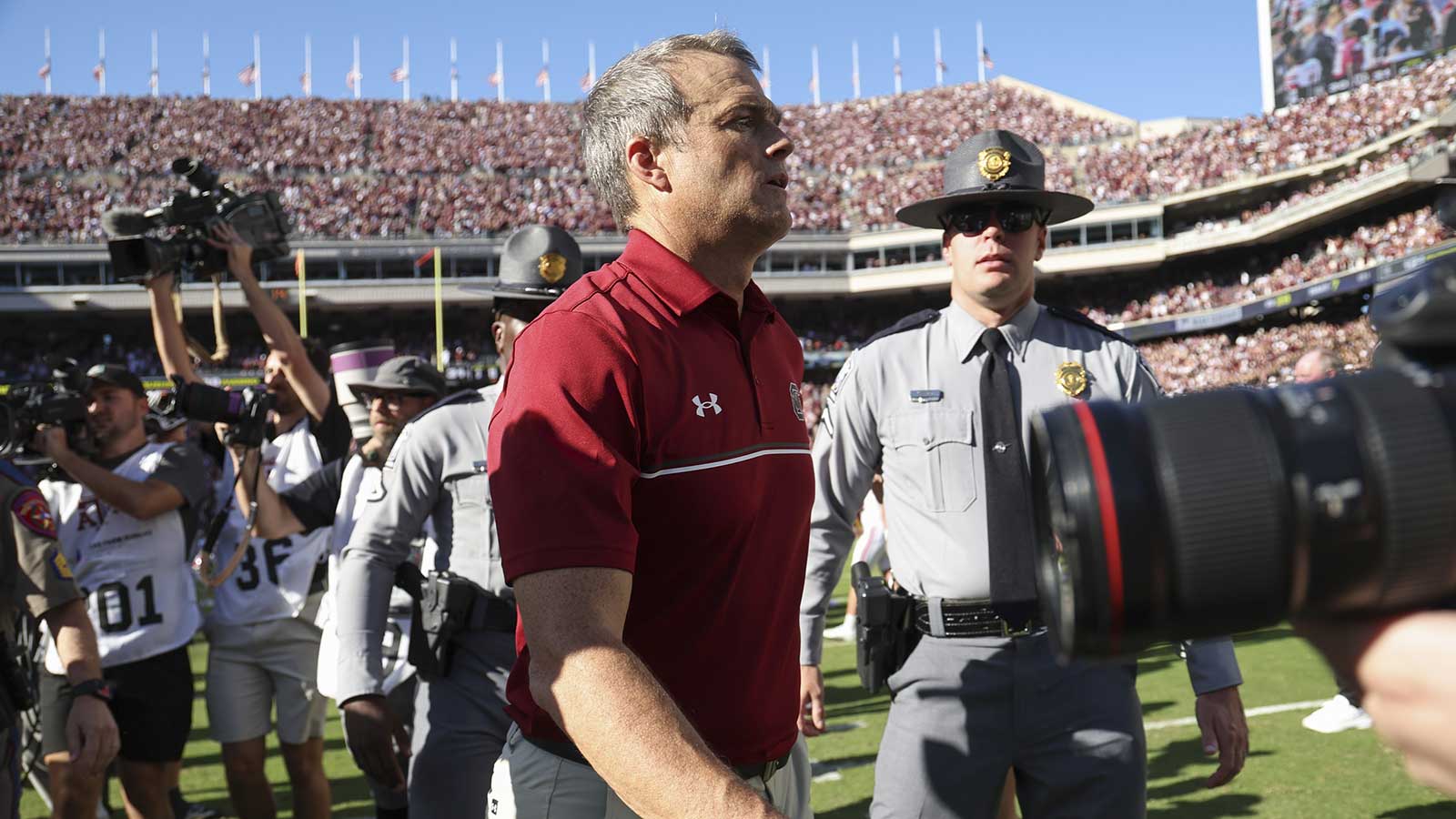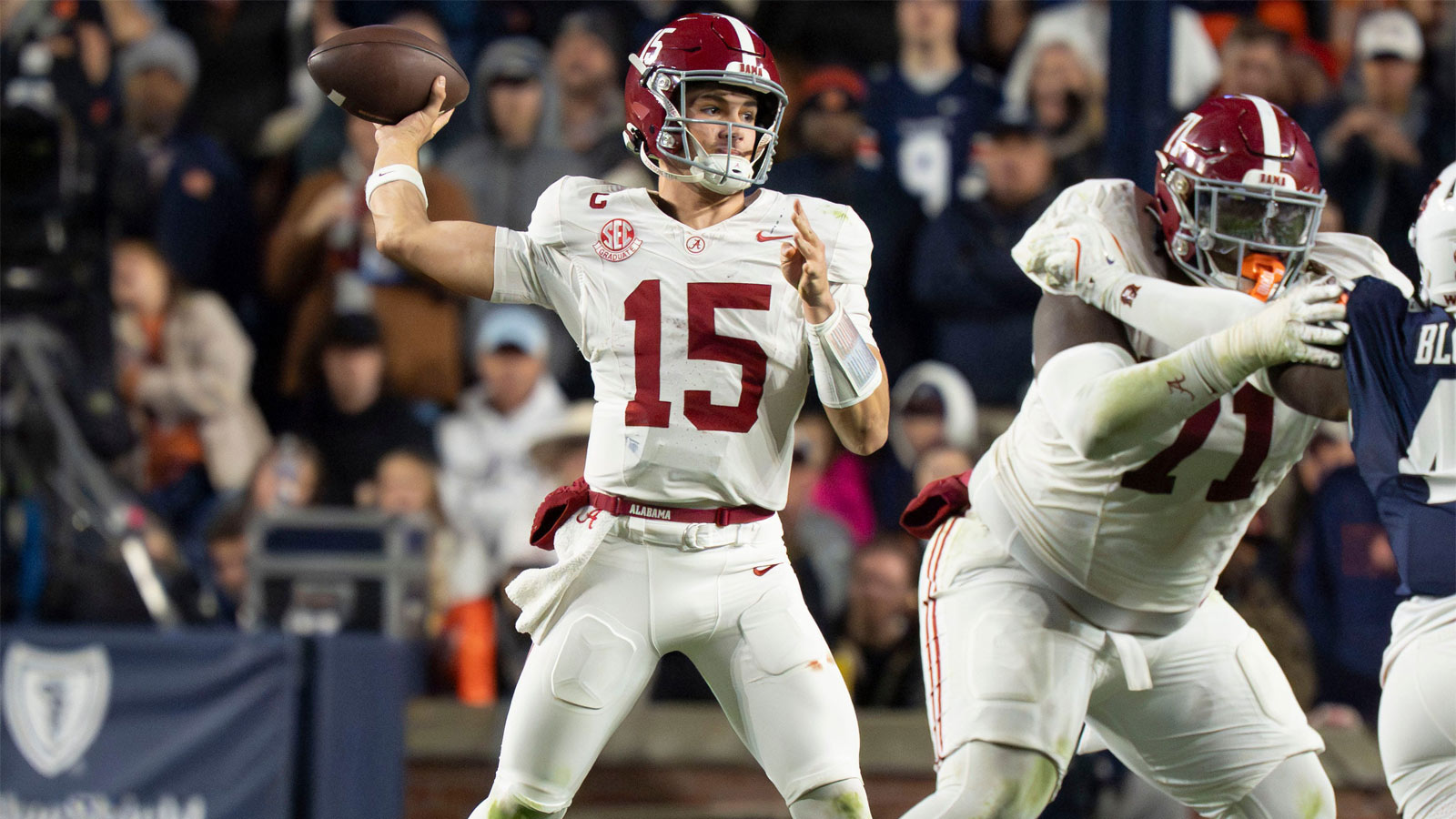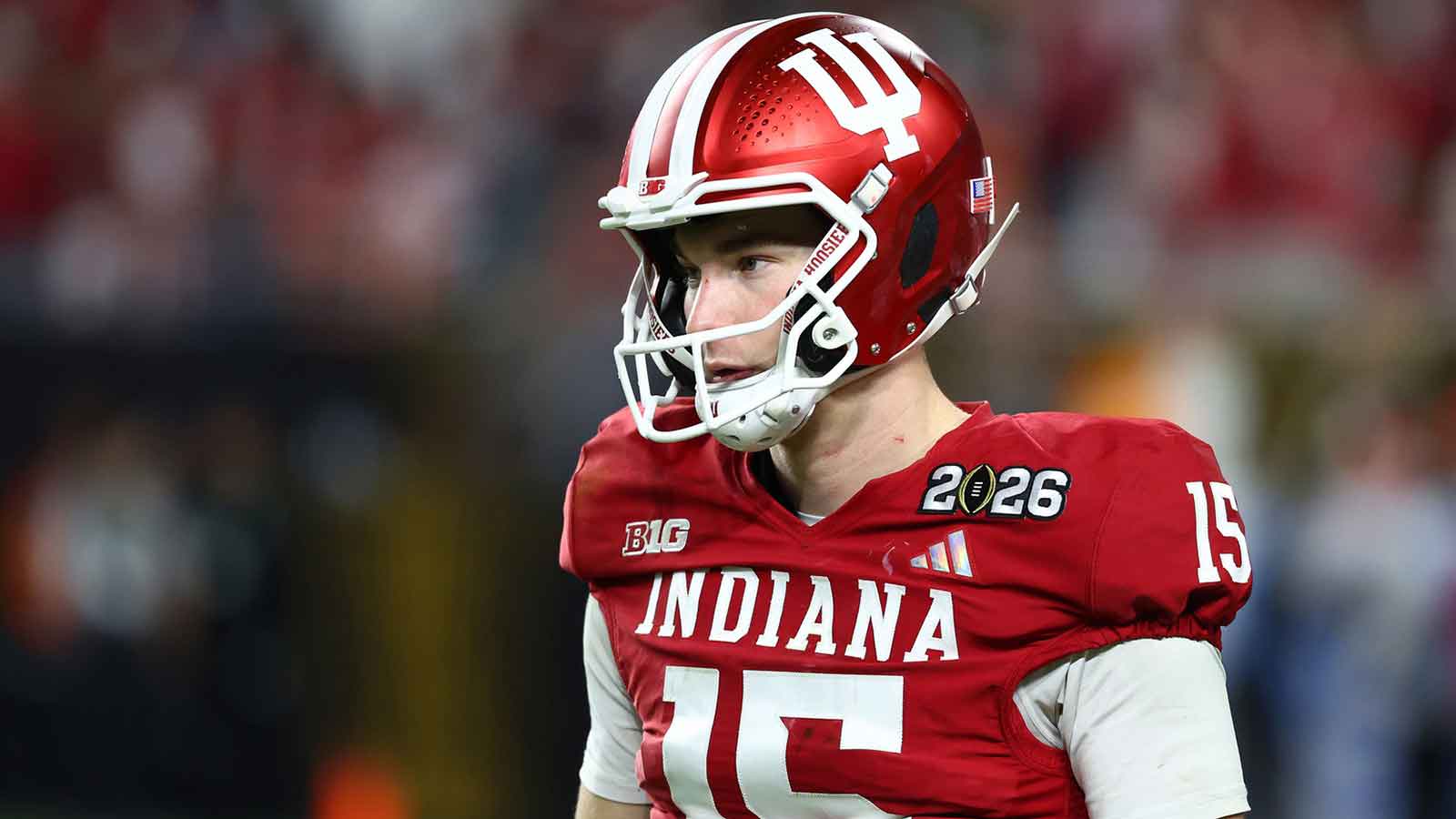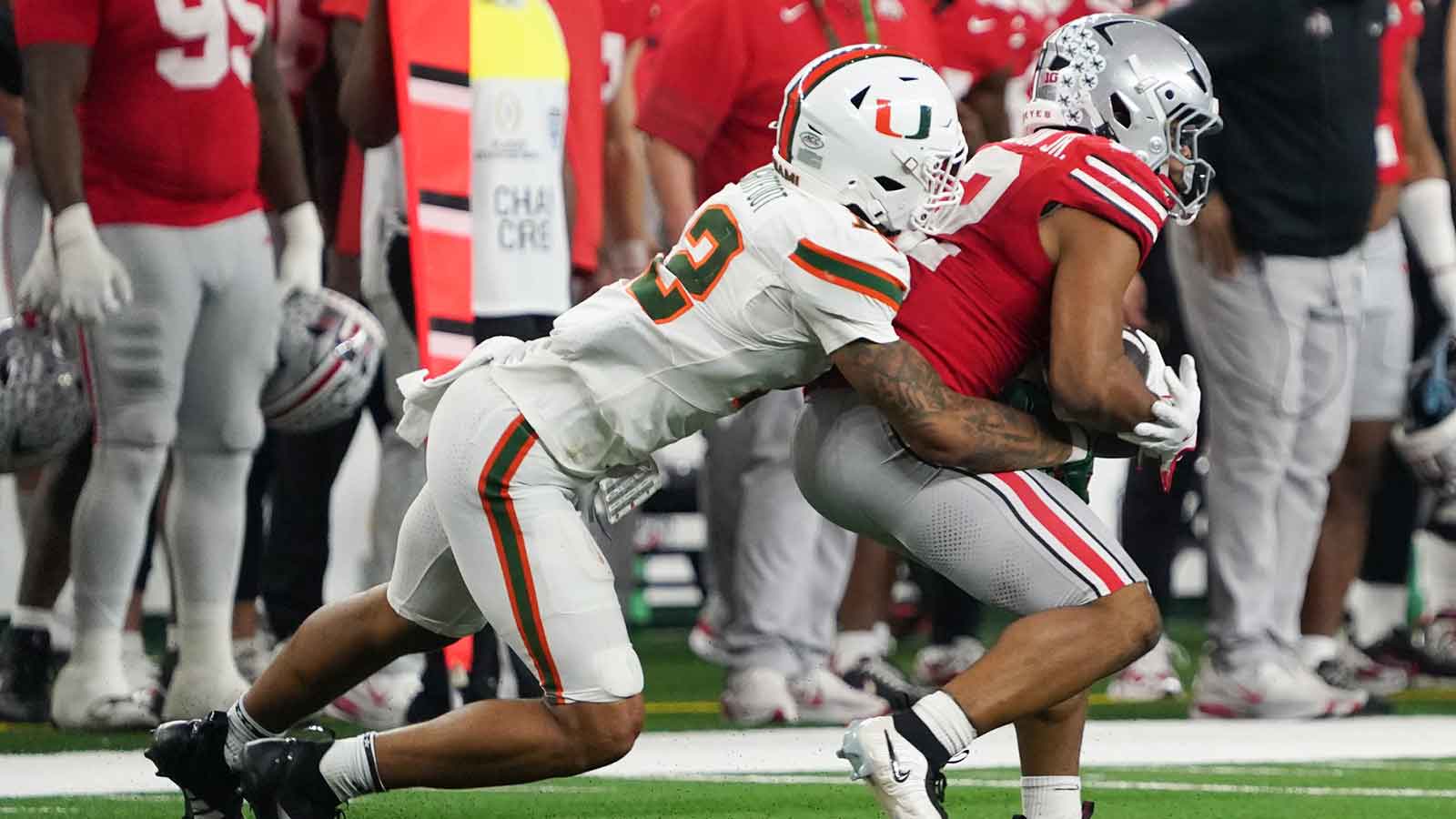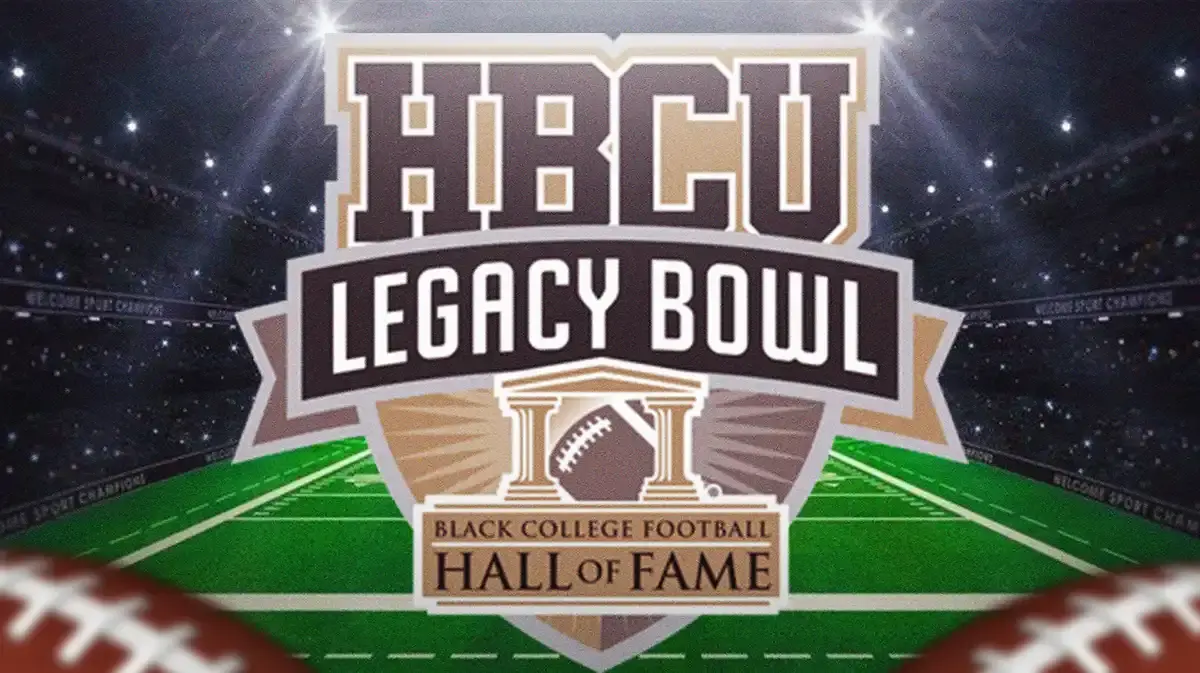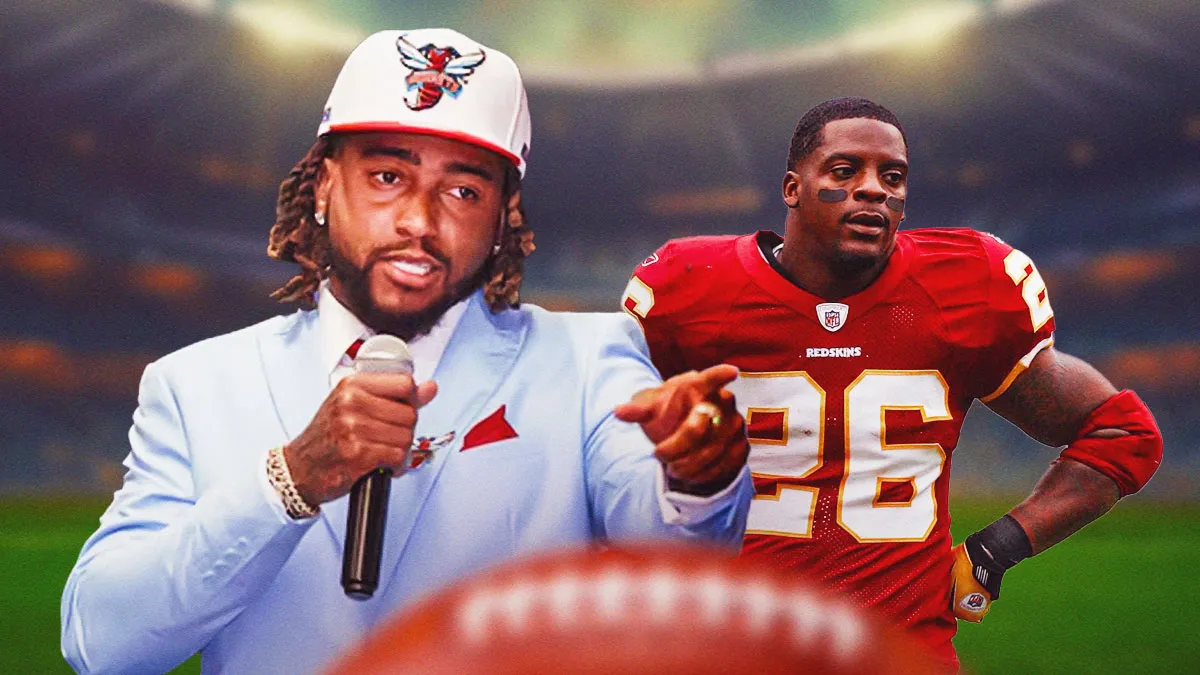When the Heisman Trophy winner is announced at the end of the 2024 season, it will mark the 25th winner since the turn of the century. The Heisman Trophy – which denotes the best player in each season in college football – has been handed out every season since 1935. Over that course of time, there have been a lot of great winners, but the sport of football has changed greatly, and that includes the type of player who wins college football's most prestigious individual award.
For example, a lot of players played on both sides of the ball before the '60s, and from the '60s through the '80s, running backs most often won the Heisman. Since the '90s, the award has been dominated by the quarterback position. The norm might not become reality this year, as 2024 is seeing one of the most unique Heisman races ever.
Colorado's Travis Hunter is the favorite to win the award because of his two-way prowess. Hunter is thriving as both a receiver and as a cornerback, and that two-way versatility is something that we haven't seen with regularity in well over a half-century. Ashton Jeanty, the running back for Boise State, also has a Heisman case. Jeanty is putting up massive numbers on the ground for a mid-major program. Only three running backs have won the Heisman in the 21st century, and no mid-major program has ever had a Heisman winner.
The rarity/uniqueness of this year's Heisman race makes this a perfect time to rank every Heisman Trophy-winning season of the 21st century, as what Hunter and Jeanty are doing is changing the landscape in college football. So, without further ado, here is every Heisman winner since the 2000 season ranked from first to last for how they played in the season that they won the highest honor in college football.
1. Joe Burrow, LSU – 2019
The 2019 college football season was one of the best ever, and Joe Burrow was at the very top. The LSU quarterback had 5,761 yards and 60 touchdowns through the air while throwing to an elite crop of receivers, including Justin Jefferson, Ja'Marr Chase, and Terrace Marshall Jr. While Burrow certainly had an elite team around him, no one could have done what he did putting up those kind of historic numbers.
Burrow's single-season yardage ranks fourth all time, and his 60 touchdown passes are the second most ever. Both marks are the best ever by a Heisman winner, though. En route to winning the National Championship, Burrow set the record for the biggest blowout win in Heisman voting. He received 93.8% of the votes, making this season not only the best 21st-century Heisman year ever but one of the best Heisman Trophy-winning seasons of all time.
2. Cam Newton, Auburn – 2010
Cam Newton actually started his career as a backup on the team of the next Heisman winner on this list, and he even won an NJCAA National Championship playing Juco ball before he joined Auburn. The slow start to his career hurts Newton's ranking on all-time college football player lists, but his prime, which was during his sole season at Auburn, was up there with the best ever.
During his Heisman season at Auburn, Newton threw for 2,835 yards and 30 touchdowns while also racking up 1,473 yards and 20 touchdowns on the ground. This made Newton only the second member of the 30-20 club (ironically also after the player he backed up at the start of his career). Newton had a cannon of an arm, but he was even more unstoppable on his feet because of his massive frame and the difficulty defenders had in tackling him. The quarterback both led the nation in passing efficiency (182) while also leading the SEC in rushing yards, and that is including running back production.
His magnificent 2010 season was about much more than the big numbers, though. Newton led a “Camback” from down 24-0 in arguably the best Iron Bowl game ever, and he led his team all the way to National Championship glory.
3. Tim Tebow, Florida – 2007
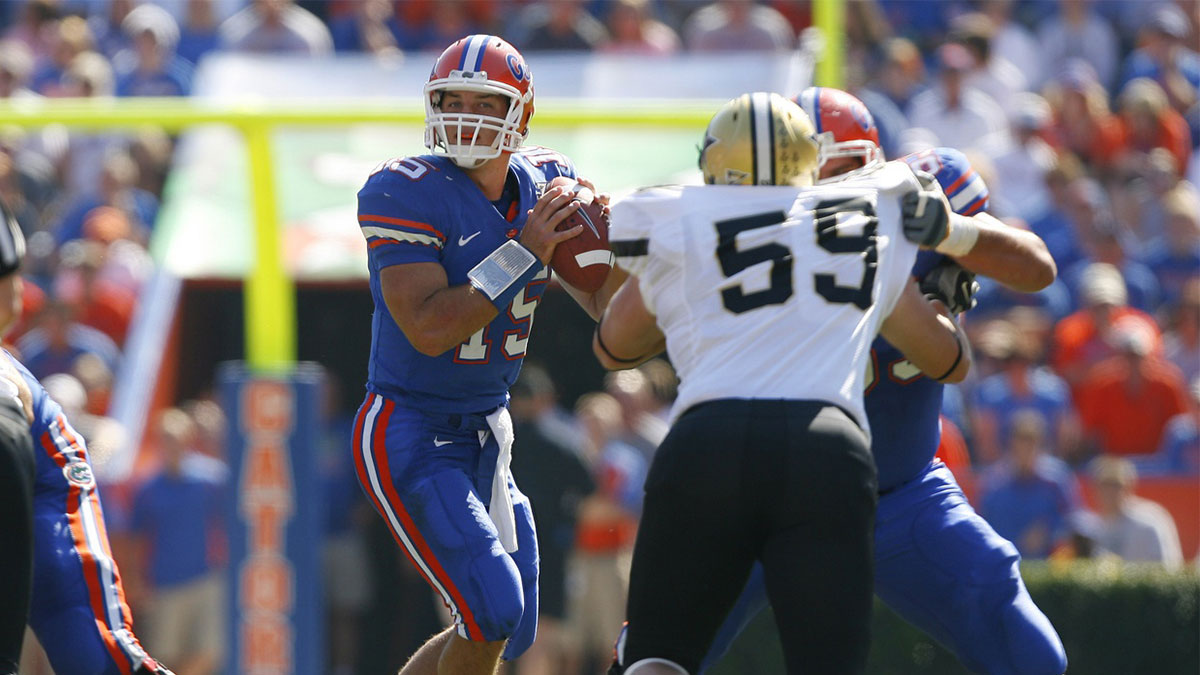
Tim Tebow has a legitimate case as the greatest college football player of all time, and he is certainly the best of the 21st century. A big reason why is because of his 2007 Heisman Trophy-winning season, a season that completely revolutionized college football. That year, the Florida quarterback became the first-ever underclassmen to win the Heisman.
This was unprecedented, as the most prestigious award in college football was historically reserved for upperclassmen, but Tebow was too good to deny. Tebow became the first player to throw for 30-plus touchdowns (32) and rush for 20-plus scores (23). While Tebow wasn't the purest football thrower ever, he did whatever it took to win, and that included putting his body on the line when necessary.
While Tebow won a championship in 2006 as a part-time player and again as a megastar in 2008, it was the 2007 season where “Tebow Time” was truly born. Tebow's dual-threat skill set ushered in a new style of quarterbacks who could do everything for years to come, and the position hasn't really looked back since. Tebow's Gators teams will also forever be remembered as some of the most iconic (and notorious) in college football history.
4. Reggie Bush, USC – 2005
Reggie Bush's Heisman is largely remembered for what happened after he hoisted the trophy, as he forfeited the award because of allegations that he received improper benefits while playing at USC. Bush has since gotten his Heisman back, and it is a good thing, too, because the 2005 Heisman season was one of the best of the 21st century.
Bush was one of the most athletic players we've ever seen. He was exceptional on the ground as a speed back (1,740 yards and 16 touchdowns), but he also popularized more pass-catching skills for running backs, as he collected 37 receptions for 478 yards and two touchdowns.
Vince Young did get the last laugh in 2005, as the Texas quarterback who finished as the runner-up in Heisman voting beat USC in the Rose Bowl for the National Championship. Even so, Bush is one of the most iconic Heisman winners ever, and he won the award during a season that is one of the most memorable in college football history. While USC lost the championship game in 2004, Bush was at the forefront when they won it all the two years prior, and his Heisman campaign was a part of a 34-game winning streak.
5. Baker Mayfield, Oklahoma – 2017
The year prior to Kyler Murray (next on this list) winning the Heisman, Baker Mayfield took home the award with a magical season. Mayfield's passer rating (196.39) was the best ever at the time in 2016 when he was the Heisman runner-up, and he only improved upon it (203.76) when he actually won the award.
Mayfield and Murray's numbers were eerily similar and came on the same team in the same era, so they were the two hardest Heisman winners to decide between on this ranking. We gave Mayfield a slight nod because his Heisman year was a little bit more legendary/memorable.
The flag plant at Ohio State and the crotch grab against Kansas are iconic moments that come to mind when thinking about Mayfield's Oklahoma tenure. Even though those weren't in-game moments that helped Mayfield win the Heisman, they surely pumped the uber-competitive quarterback up enough to play at the highest level that he could.
6. Kyler Murray, Oklahoma – 2018
Kyler Murray stepped right in for the Sooners like their Heisman quarterback from the year before never left. However, his numbers were just shy of Mayfield's (one less passing touchdown and 266 fewer passing yards). Additionally, Mayfield had a great story as a walk-on transfer. Still, Murray's Heisman year was a great one, and he was better than Mayfield as a runner 1,001 yards and 12 touchdowns.
7. Sam Bradford, Oklahoma – 2008
Our third straight Oklahoma quarterback on this list is the 2008 winner of the Heisman Trophy. Sam Bradford's offense was as high-octane as it gets. In fact, he led the Sooners to 716 total points, which, at the time, was the most ever in a single season. The high-scoring affair was headlined by five straight 60-plus point games to end the season before losing in the National Championship game.
Bradford's 4,720 yards and 50 touchdowns are some of the best numbers we've ever seen out of a Heisman. However, he didn't even get the most first place votes this year. Tim Tebow received more first place votes, but Bradford won because of total points.
8. Johnny Manziel, Texas A&M – 2012
Arguably the most iconic season of the 21st century, Johnny Manziel's Heisman-winning 2012 season might be a little overrated (including by us), but it will never be forgotten and had such a big impact on the college football world that it deserves all of the recognition that it gets.
That year, Manziel became the first freshman to ever win the Heisman Trophy. Manziel's escabality, scambling, and arm-strength allowed him to make highlight play after highlight play. No one could seem to bring the quarterback down, and he would launch bombs after evading the rush. Manziel threw for 3,706 yards and 26 touchdowns, which are numbers he blew out of the water in his next season as the team's starter, but he was legitimately one of the most famous people in the world leading up to winning the Heisman.
Manziel used his legs to put up big rushing numbers, too. He added 1,410 yards and 21 touchdowns on the ground and broke the SEC record for total offense in the process. The quarterback was must-watch-TV, and his off-the-field persona was just as big of a deal. Johnny Football is a legend, and he did something that no one thought could be done by becoming a freshman Heisman winner.
9. Derrick Henry, Alabama – 2015
Derrick Henry had one of the best rushing seasons ever in 2015. Henry's 28 rushing touchdowns are the ninth most in a single season ever, and he is one of only 25 members of the 2,000 rushing yards club. At 6-foot-3, 250 pounds, Henry was a man amongst boys. His out-of-this-world physical attributes are highlighted in the picture of him standing next to fellow Alabama Heisman winner, Mark Ingram.
Henry used God's gifts to his advantage, as it was nearly impossible for defenders to take him down. Henry's best game of the season, a 210-yard/three-touchdown game, came against an LSU team that people were watching because of their Heisman candidate, Leonard Fournette.
Henry shined in that game, and over the course of the season, opposing coordinators knew who the ball was going to, but no one could stop King Henry. This season also saw Henry lead Alabama from being ranked outside of the top-10 for one of the few times over the last decade to a National Championship victory.
10. Jameis Winston, Florida State – 2013
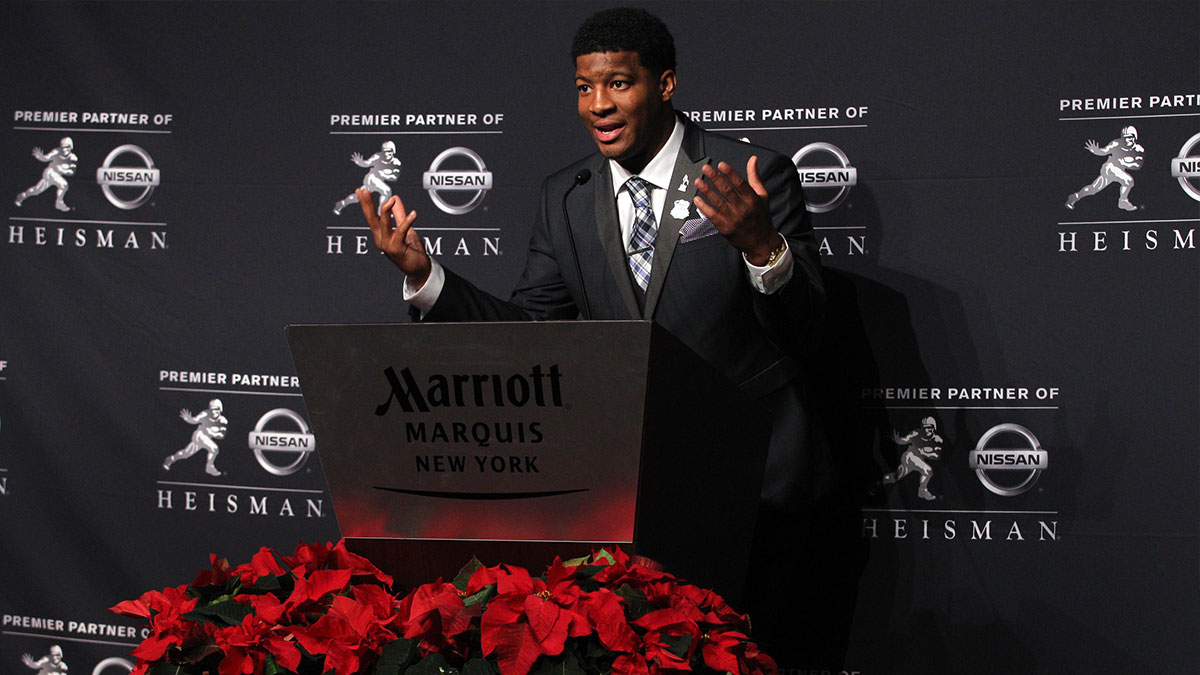
A season after Johnny Manziel won the Heisman as a freshman, Jameis Winston became the second and most recent player to win the award in his first non-redshirt season. Like Manziel, Winston had a huge personality that made him a fan favorite. He threw for over 4,000 yards and had 40 passing touchdowns, and he even did what Manziel couldn't. That is, of course, leading his team to championship glory.
Winston was a risk taker who could afford heaving the football deep down the field, and in college, it nearly always worked. The quarterback was a great leader, too, which is impressive considering how young he was at the time.
11. Lamar Jackson, Louisville – 2016
The whole world was locked in any time that Louisville played when Lamar Jackson was their quarterback despite the school not being one of the power houses in college football. Jackson was a highlight waiting to happen, and his skill set on the football field was video game-like when he won the Heisman.
Jackson captivated the nation with 1,571 yards and 21 touchdowns on the ground, as he used a variety of juke moves and unreal speed to evade defenders. The quarterback wasn't a one-trick pony, though. Jackson did plenty with his arm, too, evidenced by his 30 passing touchdowns. Louisville lost their last three games, which hurts Jackson's ranking here, but what he did when he won the Heisman was special.
12. Jayden Daniels, LSU – 2023
Jayden Daniels, put up gaudy numbers in 2023. Daniels threw for 3,812 yards and 40 touchdowns while rushing for 1,134 yards. Those jaw-dropping numbers contributed to a 208 passer rating, the highest single-season mark in college football history.
Other unbelievable things Daniels did include breaking the SEC records for single-game total yards (606) and single-game touchdowns (eight). The massive numbers are great, but Daniels' LSU team wasn't in the College Football Playoff, which hurts his ranking here.
13. Travis Hunter, Colorado – 2024
Our most recent Heisman winner is Travis Hunter, whose 2024 season was unprecedented. Hunter is the first true two-way Heisman winner in NCAA history and really the first to be a full-time player on both sides of the ball in nearly a century. The Colorado Buffaloes star and Deion Sanders' protegee recorded 1,356 snaps because of this, 434 more than the next closest player.
Hunter put up big numbers on both sides of the field, too. He had a case as both the best receiver and the best cornerback in the nation. Hunter ranked near the top in the nation in receptions per game (7.7), receiving yards per game (96), and receiving touchdowns (14). He did that all while racking up 11 pass breakups and four interceptions.
He only allowed 205 yards and one score while targeted on defense all season long, as quarterbacks refused to throw in his direction. Hunter's game-saving forced fumble in overtime was arguably the play of the year, but he will be remembered for helping revive Colorado's football program and being front and center on a team that completely changed the landscape in college football.
Hunter is only the second full-time defensive player to win the Heisman. Charles Woodson did it first, and although he took some snaps on offense, he wasn't also a full-time offensive player like Hunter.
14. Robert Griffin III, Baylor – 2011
Robert Griffin III was a dual-threat quarterback before all of the injuries, but he was actually more effective with the arm. As a Heisman winner, he completed 72.4% of his passes and threw 37 touchdowns to become Baylor's only Heisman winner. While Baylor wasn't expected to do great in 2011, Griffin set the standard from game one, where he had five touchdown passes against TCU.
15. DeVonta Smith, Alabama – 2020
DeVonta Smith is one of only four primary position receivers to ever win the Heisman. An NFL-level quarterback and a bunch of other stars on Alabama's roster certainly made things easier on Smith, but the pass-catcher was far and away the best player on the best team in the nation.
After Jaylen Waddle's injury (Waddle was arguably the best receiver on the team pre-injury), Smith took off. He somehow played even better after the Heisman was voted on. Smith had 19 catches for 345 yards and six touchdowns in the College Football Playoff. That includes arguably the greatest single half in football history. In the National Championship game, the receiver had 12 catches for 215 yards and three catches despite exiting the game early in the third quarter because of an injury.
16. Marcus Mariota, Oregon – 2014
The 2014 Heisman race was very close for a good chunk of the season, but Marcus Mariota eventually pulled away from Melvin Gordon. Mariota was in the spotlight in the biggest way in 2014, as he led Oregon to the inaugural College Football Playoff. Along the way, the quarterback threw for 4,454 yards and 42 touchdowns, and he added 15 more scores on the ground.
17. Caleb Williams, USC – 2022
Caleb Williams was viewed as one of the best NFL Draft prospects ever in 2024, and he was so highly praised largely because of his 2022 sophomore campaign. This year, Williams' arm strength and creativity led to Patrick Mahomes comparison. Williams threw for 4,537 yards and 42 touchdowns in his first year with USC after he became arguably the biggest transfer of the transfer portal era after he left Oklahoma.
The new transfer rules meant Williams didn't have to sit out, and college football fans were rewarded with an impressive aerial assault. Williams had to do everything to keep the Trojans afloat because of USC's limitations on the defensive end.
18. Matt Leinart, USC – 2004
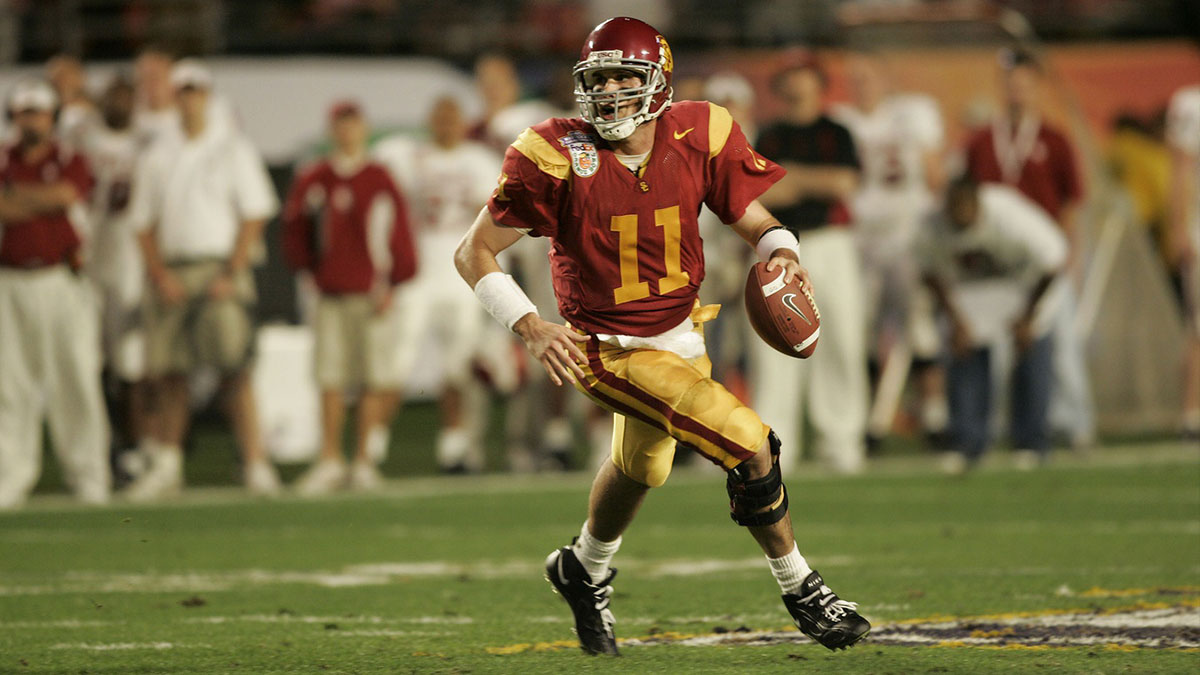
The 2004 season had five players who stood a legitimate chance to win the Heisman trophy, but Matt Leinart rose above them all. One of three USC players to win the award within a four-year period, Leinart did what neither Reggie Bush nor Carson Palmer did in their Heisman-winning season, and that is winning the national championship.
The USC dynasty was impressive during this time under Pete Carroll, but Leinart's Heisman season doesn't rank super high because it wasn't even his best statistical season with the Trojans. In fact, you could even argue this was only his third best season in college, at least from a numbers perspective.
19. Bryce Young, Alabama – 2021
The Alabama quarterback didn't have much competition for the Heisman in 2021, as a defensive linemen (Aidan Hutchinson) finished second in voting. Young's 4,872 yards and 47 touchdowns are still great marks, though, and the quarterback was at his best in the home stretch of the season. Young's status as an NFL Draft bust shouldn't take away from how great he was in college.
20. Chris Weinke, Florida State – 2000
Fans give Chris Weinke flack for being nearly 30 years old when he won the Heisman Trophy, but he won college's most prestigious award nonetheless. Weinke's yards (4,167) and passing touchdowns (33) were lofty for the time, but the league quickly began to see statistical explosions in the years to come, and Weinke's 11 interceptions on the season don't help his case, either.
Weinke's age kept Josh Heupel in the Heisman race, and Oklahoma ended up beating Weinke's Florida State team in the National Championship. This was by no means a perfect Heisman season, but it helped usher in a new era of big quarterback performances in college football that has remained strong even to this day.
21. Troy Smith, Ohio State – 2006
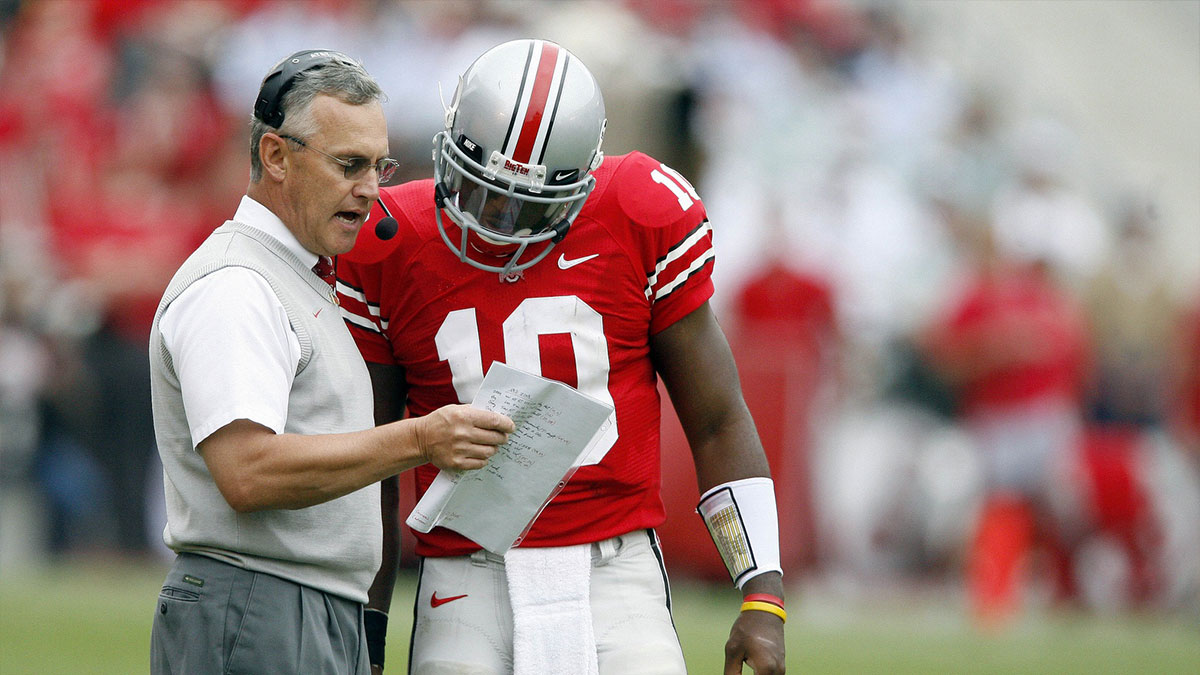
Troy Smith's Heisman season is a weird one. He had the third most first-place votes (801) ever, as well as the third-best voting percentage (91.63%) ever. That was largely due to a lack of other candidates, though. Even with the overwhelming amount of the vote, Smith's Heisman season was somewhat mediocre, if not a little bit below average.
Smith's 2,542 passing yards don't look great when compared to his peers, nor do his 204 rushing yards. Smith decisively won the award in 2006, but it is possible hindsight could have changed things a little bit if we went back in time.
22. Carson Palmer, USC – 2002
As you will notice at the end of this list, early 2000s quarterbacks are at a little bit of a disadvantage because gunslingers of the time didn't put up the numbers that they do now, simply because of the way the game was played. Carson Palmer was still the best quarterback in college football in 2002, though, and his 3,942 yards and 33 touchdowns did stand out at the time. Palmer also helped turn USC into a dynasty, and three Trojans have won the Heisman since him.
23. Jason White, Oklahoma – 2003
Jason White is the most forgotten Heisman winner of the 21st century. After all, he went undrafted in the NFL Draft, making him the only Heisman winner to be unsuccessful in an attempt to make the NFL (Pete Dawkins chose the military and Charlie Ward chose basketball).
White did have a solid 2003 season, but his lack of professional opportunities and his Big-12 Championship dud outweigh his 3,846 yards and 40 touchdowns.
24. Eric Crouch, Nebraska – 2001
Some sources list Eric Crouch as a quarterback/receiver, but he only caught one pass in his Heisman winning season. Although the catch was a 63-yard touchdown to win over number two Oklahoma, Crouch was clearly a quarterback at Nebraska, and his stats were somewhat underwhelming compared to most Heisman winners.
Crouch only threw for 1,510 yards and seven touchdowns in 2001. Although he was better on the ground (1,115 yards /18 touchdowns), Crouch's numbers meant he might not have even been the best signal-caller in college football in 2001. Rex Grossman, for example, put up bigger numbers, but Couch was a senior and Grossman was a sophomore and this season came before underclassman were viewed as Heisman contenders.
Crouch was ahead of the times with his rushing ability, but he was a pretty poor passer. His 10 interceptions were more than his touchdown passes on the season, and Grossman came close to winning the Heisman over him despite the underclassmen Heisman stigma of the time.
25. Mark Ingram, Alabama – 2009
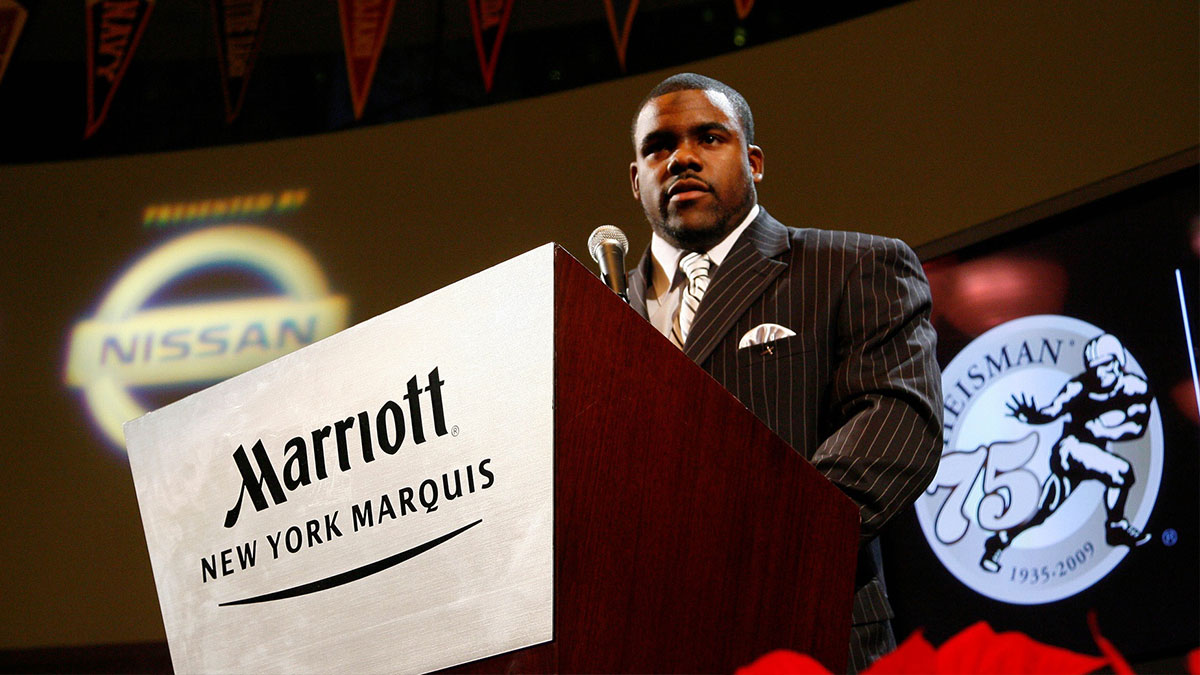
Every Heisman winning season is impressive, but Mark Ingram's year at the top in 2009 just isn't as spectacular as the rest of his peers in the 21st century. Ingram ran for 1,658 yards and 17 touchdowns, but his rushing yards mark was only the 11th most in the nation.
Ingram largely won the Heisman Trophy because he stepped up in the biggest moments, which in his credit, is what you want out of star, Heisman-level players. Notably, the running back had three touchdowns in the 2009 SEC Championship Game.
Ingram did bring a revival to the running back position for the Crimson Tide in 2009, though. His success led to other star backs such as Derrick Henry, Eddie Lacy, T.J. Yeldon, Trent Richardson, and Najee Harris joining and having success at Alabama over the next decade or so. Considering Alabama has had so many legendary players, though, it is somewhat surprising that Ingram was their first Heisman winner.



